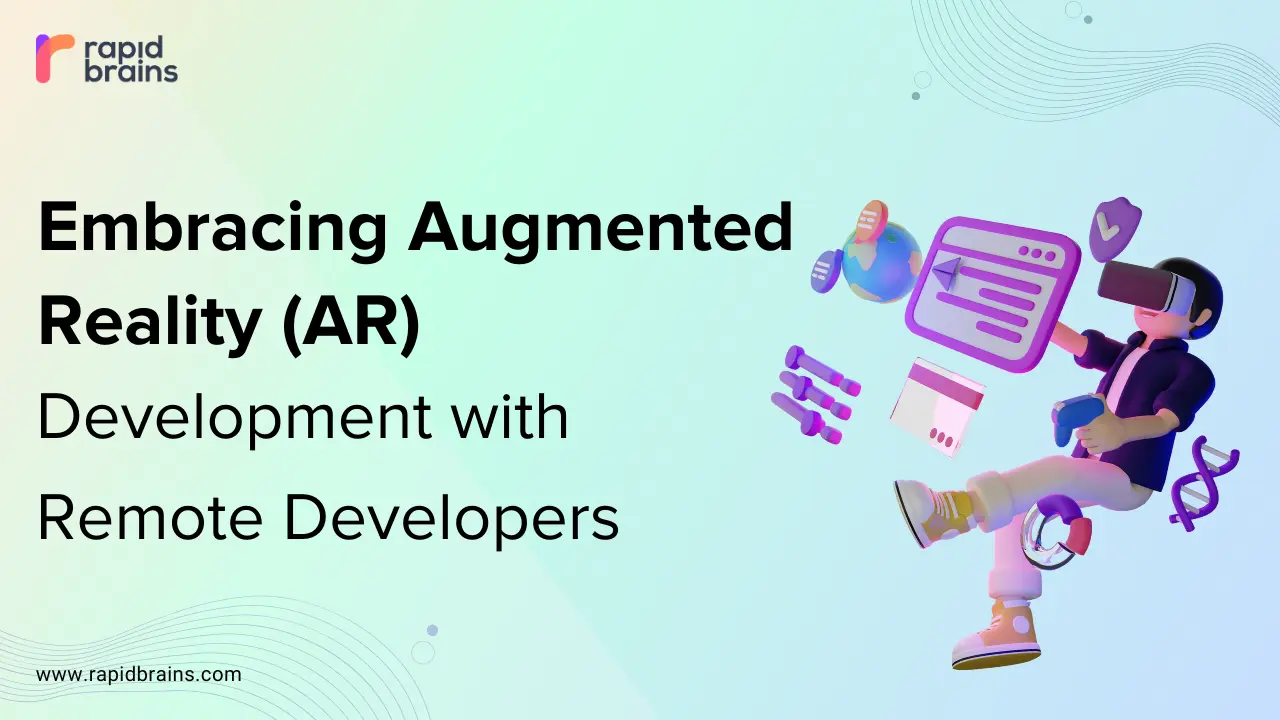
Introduction:
In the rapidly evolving landscape of technology, Augmented reality (AR has emerged as a groundbreaking innovation that blurs the lines between the virtual and physical worlds. AR has found applications in various industries, from gaming and entertainment to education and enterprise solutions. With the rise of remote work culture, businesses are now turning to remote developers to harness the potential of AR development. In this blog post, we will explore the advantages of collaborating with remote developers for AR projects and how this approach can lead to groundbreaking AR experiences.
Breaking Barriers with Remote Developers:
The traditional model of software development often relied on in-house teams working in close proximity. However, as technology advances and the global talent pool expands, remote developers have become an attractive option for businesses looking to leverage specialized skills and stay competitive in the market. AR development demands expertise in a variety of fields, such as computer vision, 3D modeling, and user experience design. Remote developers bring diverse backgrounds and fresh perspectives to the table, ensuring the creation of innovative AR applications.
Flexibility and Cost-Effectiveness:
One of the primary benefits of hiring remote developers for AR projects is the flexibility it offers. Organizations can scale their development teams based on project requirements, reducing costs associated with maintaining a full-time in-house team. Additionally, remote developers often have more competitive rates, especially when located in regions with lower living costs. This cost-effectiveness can free up resources for further AR research and development.
Global Talent Pool and Expertise:
AR development is a specialized field, and locating the right talent can be challenging within a confined geographical area. By collaborating with remote developers, businesses can access a vast global talent pool with diverse skill sets and experiences. This diversity fosters creativity and problem-solving, enabling the creation of exceptional AR experiences that resonate with users on a global scale.
24/7 Development Cycle:
Having a remote team spread across different time zones can be advantageous for AR projects. A 24/7 development cycle allows work to continue around the clock, significantly reducing project timelines. This constant progress is especially beneficial for organizations that are looking to launch their AR applications quickly and gain a competitive edge.
Collaboration and Communication Tools:
Successful remote AR development heavily relies on efficient collaboration and communication tools. With advancements in technology, numerous platforms enable seamless interaction between team members, regardless of their physical location. Video conferencing, instant messaging, and project management tools facilitate real-time discussions, brainstorming sessions, and updates, promoting a cohesive and agile development process.
Overcoming Challenges:
Despite the numerous benefits of remote AR development, challenges may arise. Time zone differences and language barriers could impact communication initially. However, a strong emphasis on clear communication protocols and periodic team meetings can effectively address these issues. Additionally, choosing developers with prior remote work experience and a proactive attitude can significantly reduce potential hurdles.
Conclusion:
As augmented reality continues to transform various industries, remote developers have emerged as a valuable resource in driving innovation and creating immersive AR experiences. Embracing remote AR development allows businesses to tap into a global talent pool, fostering diversity and flexibility while maintaining cost-effectiveness. By leveraging collaboration tools and clear communication strategies, organizations can overcome challenges and unlock the full potential of AR technology, propelling their products and services into the future of AR-driven digital interactions.




